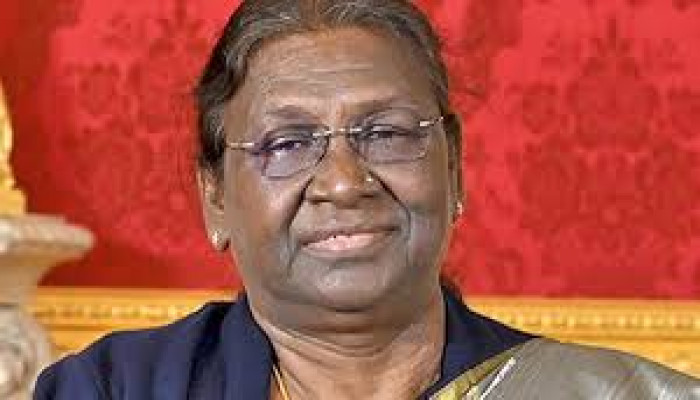President Murmu rejects mercy plea of Pak terrorist convicted in Red Fort attack case
- In Reports
- 09:02 PM, Jun 12, 2024
- Myind Staff
On 12th June, the mercy petition of Pakistani terrorist Mohammed Arif alias Ashfaq, convicted in the nearly 24-year-old Red Fort attack case, has been rejected by President Droupadi Murmu, officials confirmed. This marks the second mercy plea rejected by the President since assuming office on July 25, 2022.
Earlier, the Supreme Court had dismissed a review petition filed by Arif on November 3, 2022, thereby upholding the death penalty awarded to him in the case. However, experts believe that a death row convict still has the option to approach the Supreme Court under Article 32 of the Constitution, seeking commutation of their sentence due to prolonged delay.
According to officials, the mercy petition from Mohammed Arif, received on May 15, was rejected by President Droupadi Murmu on May 27, as per the order from the President’s secretariat dated May 29. The Supreme Court, in its decision upholding the death sentence, emphasised that there were no mitigating circumstances in Arif’s favour. The court underscored that the attack on the Red Fort posed a direct threat to the country's unity, integrity, and sovereignty.
The attack, which occurred on December 22, 2000, involved intruders opening fire at the 7 Rajputana Rifles unit stationed within the Red Fort premises, resulting in the deaths of three Army personnel. Mohammed Arif, a Pakistani national and a member of the banned Lashkar-e-Taiba (LeT), was arrested by Delhi Police four days after the attack. The Supreme Court's order in 2022 described the appellant-accused, Mohd. Arif alias Ashfaq, as a Pakistani national who had illegally entered Indian territory.
Mohammed Arif was found guilty of conspiring with other militants to carry out the attack on the Red Fort. The trial court sentenced him to death in October 2005. This decision was upheld by both the Delhi High Court and the Supreme Court in subsequent appeals. According to the trial court, the conspiracy to attack the Red Fort was planned at the house of two conspirators in Srinagar. Arif, along with three other Lashkar-e-Taiba (LeT) militants, had illegally entered Srinagar in 1999.
Despite the legal challenges, including review and curative petitions, Mohammed Arif's plea for mercy was ultimately rejected, underscoring the gravity of his crime and its threat to national security. The Delhi High Court upheld the trial court's decision in September 2007. Subsequently, Arif appealed to the Supreme Court, which affirmed the death sentence in August 2011.
Following this, his review petition was dismissed by a two-judge bench of the Supreme Court in August 2012. A curative petition was also rejected in January 2014. After these rejections, Arif filed a petition requesting that review petitions in cases involving death sentences be heard by a bench of three judges and in open court.
In September 2014, a constitution bench of the Supreme Court concluded that all cases in which the death sentence was awarded by the high court should be listed before a bench of three judges. Before this verdict, review and curative petitions of death row convicts were not heard in open courts but were decided through chamber proceedings by circulation.
In January 2016, a constitution bench directed that Mohammed Arif shall be allowed to seek a re-opening of the dismissal of his review petitions for an open court hearing within one month. However, the apex court eventually rejected his review petition in its verdict delivered on November 3, 2022. This decision reflects President Murmu's rejection of another mercy petition last year in a separate case, demonstrating a firm stance on cases involving heinous crimes.
Image Source: The Hindu







Comments